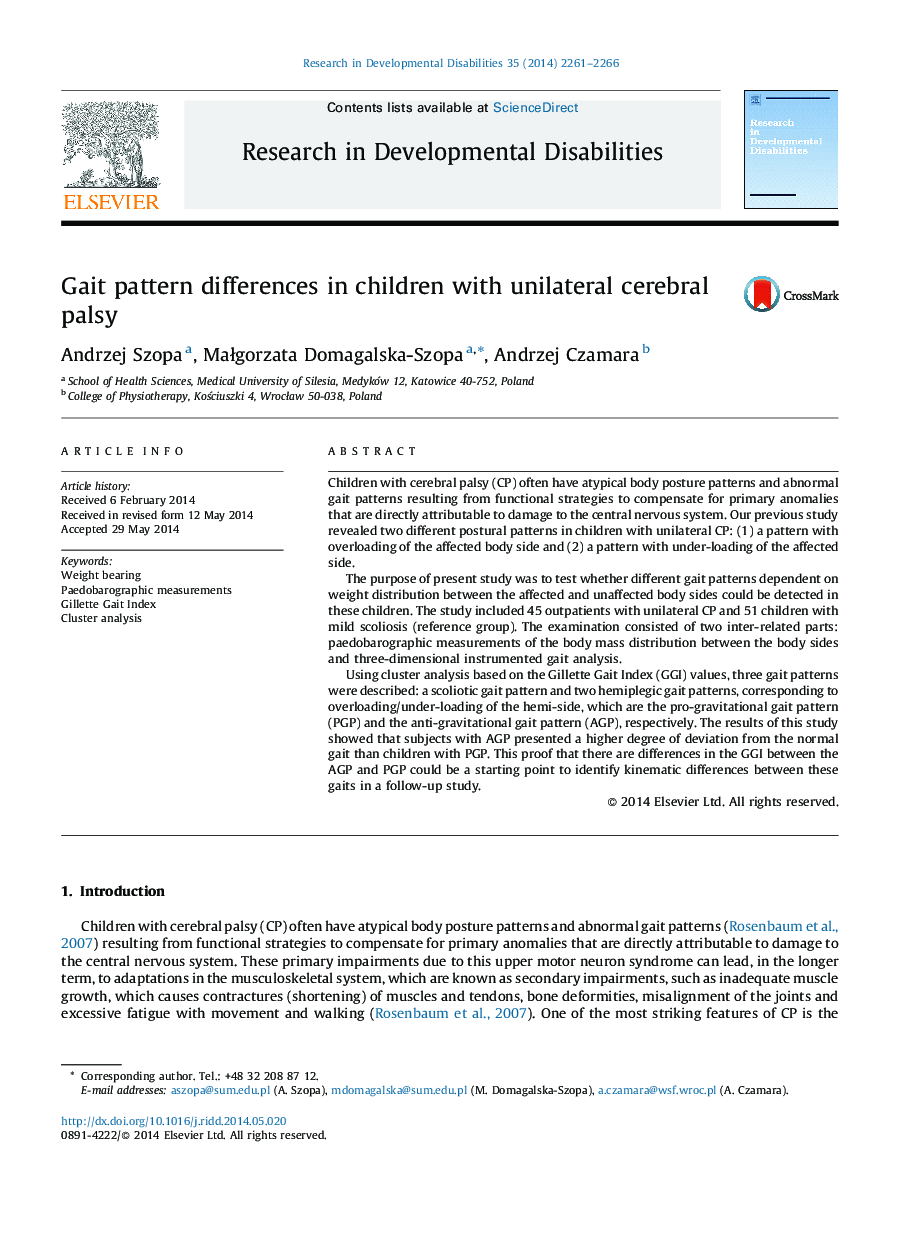| Article ID | Journal | Published Year | Pages | File Type |
|---|---|---|---|---|
| 10317350 | Research in Developmental Disabilities | 2014 | 6 Pages |
Abstract
Using cluster analysis based on the Gillette Gait Index (GGI) values, three gait patterns were described: a scoliotic gait pattern and two hemiplegic gait patterns, corresponding to overloading/under-loading of the hemi-side, which are the pro-gravitational gait pattern (PGP) and the anti-gravitational gait pattern (AGP), respectively. The results of this study showed that subjects with AGP presented a higher degree of deviation from the normal gait than children with PGP. This proof that there are differences in the GGI between the AGP and PGP could be a starting point to identify kinematic differences between these gaits in a follow-up study.
Related Topics
Life Sciences
Neuroscience
Behavioral Neuroscience
Authors
Andrzej Szopa, MaÅgorzata Domagalska-Szopa, Andrzej Czamara,
